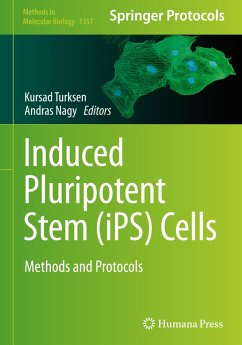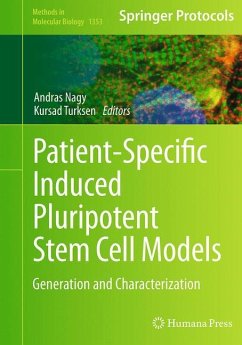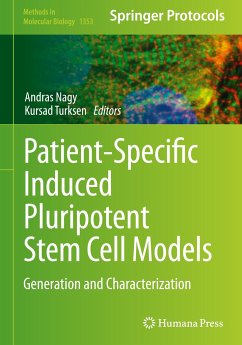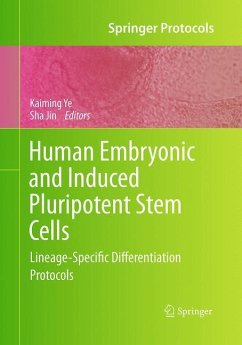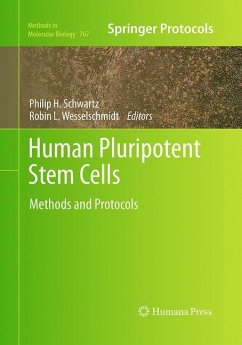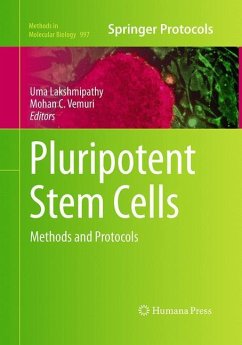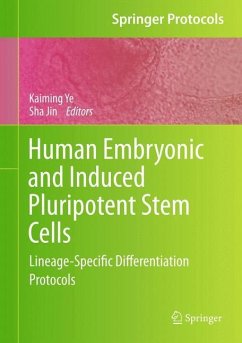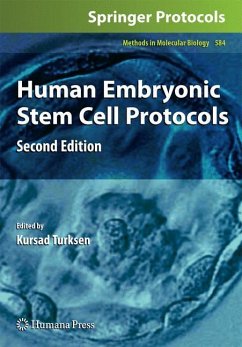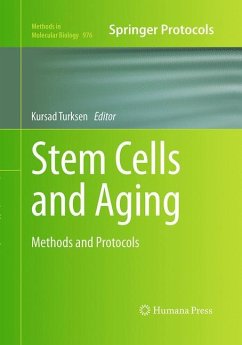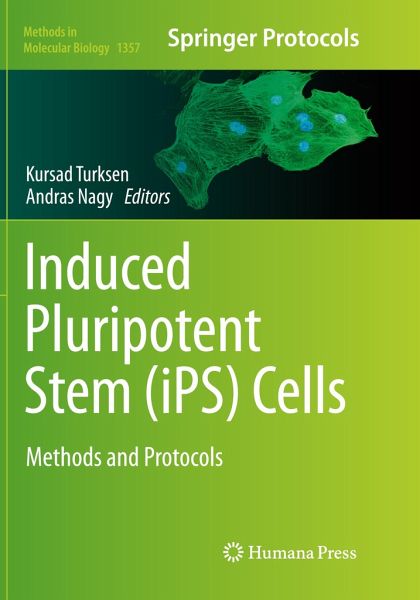
Induced Pluripotent Stem (iPS) Cells
Methods and Protocols
Herausgegeben: Turksen, Kursad; Nagy, Andras
Versandkostenfrei!
Versandfertig in 6-10 Tagen
100,99 €
inkl. MwSt.

PAYBACK Punkte
50 °P sammeln!
This volume aims to be a collection of essential protocols in iPS cell field. Induced Pluripotent Stem (iPS) Cells: Methods and Protocols guides readers through multiple facets of stem cell biology, lineage commitment and differentiation. Written for the Methods in Molecular Biology series, chapters include introductions to their respective topics, lists of the necessary materials and reagents, step-by-step, readily reproducible laboratory protocols, and tips on troubleshooting and avoiding known pitfalls.Authoritative and practical, Induced Pluripotent Stem (iPS) Cells: Methods and Protocols ...
This volume aims to be a collection of essential protocols in iPS cell field. Induced Pluripotent Stem (iPS) Cells: Methods and Protocols guides readers through multiple facets of stem cell biology, lineage commitment and differentiation. Written for the Methods in Molecular Biology series, chapters include introductions to their respective topics, lists of the necessary materials and reagents, step-by-step, readily reproducible laboratory protocols, and tips on troubleshooting and avoiding known pitfalls.
Authoritative and practical, Induced Pluripotent Stem (iPS) Cells: Methods and Protocols provides protocols that can be used by both experts and novices interested in stem cells.
Authoritative and practical, Induced Pluripotent Stem (iPS) Cells: Methods and Protocols provides protocols that can be used by both experts and novices interested in stem cells.



